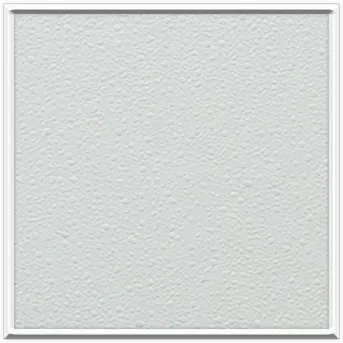Nov . 11, 2024 19:14 Back to list
pvc vs gypsum ceiling
PVC vs. Gypsum Ceiling A Comprehensive Comparison
When it comes to choosing ceiling materials for construction or renovation projects, two of the most popular options are PVC (Polyvinyl Chloride) and gypsum. Each material has its own unique set of characteristics, advantages, and drawbacks. This article aims to provide a detailed comparison between PVC and gypsum ceilings, helping you make an informed decision for your space.
What are PVC Ceilings?
PVC ceilings are made from polyvinyl chloride, a type of plastic that is known for its durability and versatility. These ceilings typically come in panels, which can be easily installed to create a seamless look. PVC ceilings are available in a range of colors and designs, making them suitable for various aesthetics, from modern to traditional.
Advantages of PVC Ceilings
1. Water Resistance One of the most significant advantages of PVC ceilings is their water resistance. This makes them an excellent choice for areas prone to moisture, such as bathrooms and kitchens. Unlike gypsum, which can absorb moisture and lead to mold growth, PVC ceilings remain unaffected by humidity.
2. Easy Maintenance PVC ceilings require minimal maintenance. They can be easily cleaned with a damp cloth and do not require repainting or refurbishment, saving both time and money in the long run.
3. Lightweight and Easy to Install The lightweight nature of PVC panels makes them easy to handle and install. They can often be hung over existing ceilings without the need for extensive preparation.
4. Variety of Designs PVC ceilings come in a wide range of colors, textures, and finishes. Whether you prefer a glossy look or a matte finish, there is likely a PVC design that fits your vision.
5. Durability PVC is resistant to impacts and scratches, making it a durable option that can withstand the wear and tear of daily life.
What are Gypsum Ceilings?
Gypsum ceilings are made from gypsum boards, which are composed of a gypsum core encased in paper. These ceilings are typically used in drywall installations and can be finished with paint, texture, or other materials to enhance their appearance.
Advantages of Gypsum Ceilings
1. Fire Resistance Gypsum has inherent fire-resistant properties due to its composition. In case of a fire, gypsum ceilings can help slow down the spread of flames, providing crucial time for evacuation.
pvc vs gypsum ceiling

2. Sound Insulation Gypsum ceilings provide better sound insulation compared to PVC. This makes them an ideal choice for spaces where noise reduction is a priority, such as in residential apartments or commercial offices.
3. Sustainability Gypsum is a more eco-friendly material than PVC, as it is made from natural resources and is recyclable. For environmentally conscious consumers, this can be a significant factor in their decision-making.
4. Aesthetic Flexibility Gypsum ceilings can be easily painted or textured to suit various decor styles. This flexibility allows homeowners to customize their space according to personal preferences.
Disadvantages of PVC Ceilings
While PVC ceilings come with numerous advantages, they also have some drawbacks
1. Limited Fire Resistance Unlike gypsum, PVC is flammable and can release toxic fumes when burned, making it less ideal for certain applications where fire safety is a concern.
2. Environmental Impact The production of PVC has a higher environmental impact compared to gypsum. PVC is derived from petroleum-based products, making it less sustainable.
Disadvantages of Gypsum Ceilings
Gypsum ceilings also have their downsides
1. Moisture Sensitivity Gypsum is prone to water damage and can lead to mold growth if not properly sealed, making it unsuitable for high-humidity areas.
2. Weight and Installation Gypsum ceilings are significantly heavier than PVC, which may require more labor and structural support for installation.
Conclusion
Choosing between PVC and gypsum ceilings ultimately depends on your specific needs and preferences. If you are looking for a water-resistant, lightweight, and low-maintenance option, PVC ceilings may be the ideal choice. On the other hand, if fire resistance, sound insulation, and eco-friendliness are more important, then gypsum ceilings may be the better option. Understanding the pros and cons of each material will help ensure that your ceiling choice enhances both the functionality and aesthetic appeal of your space.
-
Quality Ceiling Trap Doors & Access Panels | Easy & Secure AccessNewsAug.30,2025
-
Durable Ceiling T Grid Systems | Easy InstallationNewsAug.29,2025
-
PVC Gypsum Ceiling: Durable, Laminated Tiles for Modern SpacesNewsAug.28,2025
-
Pvc Gypsum Ceiling Is DurableNewsAug.21,2025
-
Mineral Fiber Board Is DurableNewsAug.21,2025
-
Ceiling Tile Clip Reusable DesignNewsAug.21,2025







